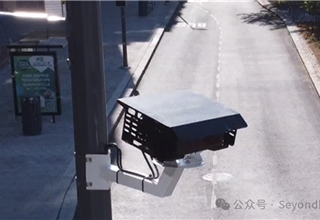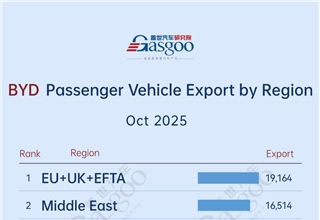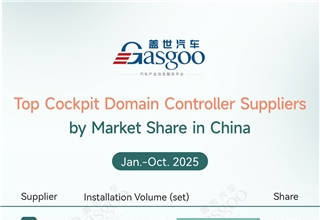Barack Obama's dramatic intervention into the fate of the big three US carmakers has sent a signal to the global auto sector to get its act together or drown.
The oustings of Rick Wagoner and Christian Streiff as chief executives of General Motors and Peugeot Citroën yesterday sent tremors through the boardrooms of the battered auto industry.
Lacking the systemic importance of the banking sector, which has been bailed out with trillions of dollars, the car industry is being left to bleed to death - or consolidate.
This month, Martin Winterkorn, chief executive of Volkswagen - the world's third-largest carmaker and sure-fire survivor of the financial crisis - told 200 analysts and reporters he could see the survival of one Japanese firm, perhaps a few Chinese, two or three Europeans and an American - Ford, clearly.
Even Toyota, the most likely Japanese survivor, which is run by a close-knit team of visionary engineers dedicated to eco-friendly technological innovation, is in trouble as the industry's expectations for global sales of 70m have turned into - at best - 50m this year. US sales alone could halve to little more than 8.5m.
In Europe sales could fall 20% to 30% and are now holding up in a dozen countries by "scrappage" premia - payments for scrapping older cars. The €780bn (£724bn) European car industry suffers from at least 20% over-capacity and structural problems pre-dating the crisis.
The industry will see a shake-out in the coming year that could mean only a handful of firms remain in business. VW, which is virtually in Porsche's hands, will be one of them. The French president, Nicolas Sarkozy, will do his utmost to ensure that at least Renault - part-owner of Nissan and itself 30% state-owned - survives.
Daimler, owner of Mercedes, and BMW may be forced into a premium merger. Even in an Obama-backed shotgun marriage with Chrysler, Italy's Fiat may bite the dust.
In Asia, China's 150 auto firms will be forced by Beijing into a series of mergers and acquisitions. India's Tata will - if it survives its expensive Jaguar Land Rover takeover - dominate the landscape, and in Korea Kia is likely to emerge as the big player, with Hyundai - linked to GM - on a funeral pyre.
Wagoner was fired by Obama because he had failed to lay the ground for the "green" revolution and had driven what was the world's biggest carmaker for 80 years into a brick wall as it ran out of cash. Insiders say that, with more genuine independent directors on his board, he would have gone years ago.
His departure underlines that Obama meant what he said during his presidential campaign when he warned the industry it should be on a sustainable path in an era of "peak oil" and the need for fuel efficiency. The global industry, with a few exceptions, ignored his message. Top carmakers have been lobbying the EU for years to get Brussels to water down its environmental plans to cut car emissions levels.
But other car bosses could now be vulnerable as the industry looks for new leadership to reflect the changed agenda. Dieter Zetsche, boss of Daimler, and Norbert Reithofer, head of BMW, could be next in the firing line as premium carmakers suffer disproportionately from the global collapse of sales.
At Daimler, Zetsche, the walrus-moustachioed ex-head of Chrysler during a disastrous 10-year marriage, is struggling to contain a plunge in Mercedes sales after a profits warning, amid speculation it might be forced to merge with BMW, its bitter rival.
BMW's Reithofer has so far retained the support of the Quandt family, who own 46% of the firm. But the family that rescued a near-bankrupt BMW 50 years ago, is expanding its interests elsewhere. Reithofer is also surrounded by a new, more youthful board, including the sales chief, Ian Robertson.
Carl-Peter Forster, president of GM Europe and a former BMW director, may also feel the heat as a €3.3bn rescue plan for Opel, Vauxhall and Saab falters in the wake of the White House's rejection of Wagoner's restructuring programme. At most, it buys the German chancellor, Angela Merkel, more time to sort out the threat to a quarter of a million jobs before the 29 September general election.
Streiff, victim of a boardroom coup, was not even thanked for his stint as Peugeot chief in a curt statement from the chairman, Thierry Peugeot, who appointed Philippe Varin, boss of Corus, to succeed him.
Varin, ex-head of the aluminium group Pechiney, is highly regarded after turning around Anglo-Dutch Corus, integrating British Steel and Hoogovens and presiding over the sale to India's Tata group. Streiff, the former deputy chief executive of the glass-maker St Gobain, who reportedly suffered a mini-stroke last year, made enemies in the boardroom and lost its confidence, including crucially that of the controlling Peugeot family, with his abrasive style, sole focus on cost-cutting - shedding 11,000 jobs - and lack of strategic vision, including for mergers.
He had previously lasted just 100 days as head of Airbus as his drive to cut costs and lack of diplomatic skills alienated the key Franco-German players, including both governments, at the plane-maker's owner, EADS.
There will be upheavals not only in boardrooms as the tarnished old guard makes way for the "green new deal" protagonists of electric cars, but in the industry as a whole. Obama has ensured this with the stroke of a pen - and an unprecedentedly blunt intervention.









